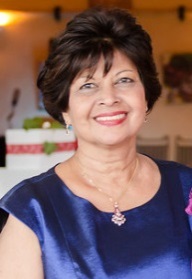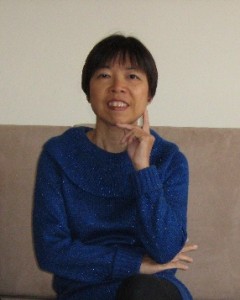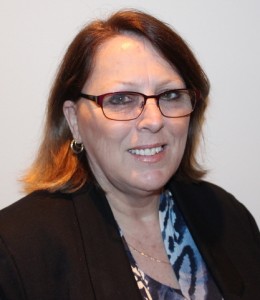Black Swan July 2015
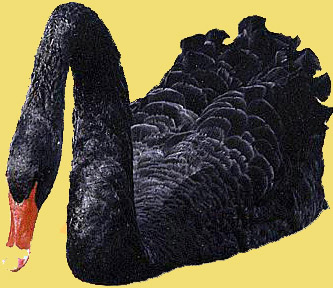 |
Black Swan July 2015The Newsletter of Toastmasters District 17Editor: Auriole D’Souza
|
|
|
|
|
|
|||
Editorial
I am the new Editor of the Black Swan, having taken over from Judith Allen this month. Under her excellent guidance I will bring you many interesting articles in the coming months.
Let me introduce myself!
I am a founding member of the West End Toastmasters (5607), a Club that chartered in January 2002. Like many other City Clubs we hold our meetings at lunch time. Our members come from varied government departments and the private sector.
I have held several club officer positions within our club including serving as an Area Governor.
My email address is: auriole@optusnet.com.au
Look forward to hearing from you.
Kind regards
Auriole D’Souza
Black Swan Editor
District Director’s Report
I am proud, honoured and humbled to be the District Director. I have big dreams of exceptional success in our district. In 12 months’ time I want to look back and see that we have improved and our members are happy.
‘If things ain’t broke don’t change it’.
I am sure you have heard that before. I certainly have, and in fact used those words in the past to secure stability.
This year I ask you to Dream big, to Team together to Achieve big, and to Make success happen.
I have challenged your leadership team (Area Director to District Director) to approach everything we do with open eyes and challenge our process.
- Work out if there is a better way to do things,
- A way that makes your membership more enjoyable.
- A way to improve the leadership role, or make it equally effective but easier.
Most of all improve the member experience which will lead our district from being a very good district to a great district.
Already the Program Quality Director Leonor Ragan has listened to the members, delivered electronic registration for events, and taken TLI / COT into the city with great success.
Your Public Relations Manager (PRM) Tom Bielski is reviewing ways to improve the Black Swan newsletter, to make it easier on the editor (Auriole D’Souza), and easier on the webmaster (David Nicholas and Mark Richards) and I believe more modern and easier to read.
PRM and the webmaster are also looking at minor changes to the website. There is a possible introduction of some of the latest technology to improve the look and feel of the D17 website. It may not happen this year but the wheel has started to turn.
Our year of continuous improvement is only one month old, and already there is movement towards improvement.
That is not to say anything was wrong with the previous years. We could not be such a successful district in terms of achievements. We could not deliver Presidents Distinguished District three years in a row if our process was broke. It has, and still is a very good process, and with great endeavours we will continue to be that successful district.
We will not be truly successful if we do not look at what we do, and decide, that is as good as we can be. Accept it, and do the same thing year in year out.
The indicators for change are well known.
- Too many clubs struggling to build their membership base.
- Too many clubs with membership retention problems
- Too many clubs with the same club officer as another club. Not because they want to, but because the club needs their knowledge and support.
If we are to be a truly great district these three need to be reduced, success needs to be planned, and already your leaders are in the middle of that strategic thinking. I want all members to also put some thought into opportunities to improve and make it better for you. Feed these thoughts back to us so that change can be planned and implemented where possible.
I know that working together we can achieve so many great things we can be the best district in the world with your help.
My focus this year is on member enjoyment, every club looking after every member. Every member obtaining the best toastmasters can offer at every meeting or event they attend.
Join me and the elected leaders to achieve improvement in everything we do and say.
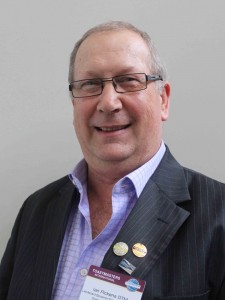
Ian Pickens DTM
District 17 Director 2015-2016
Back To Basic Lessons Learnt
When you’ve been an Area and Division Governor before, it is easy for others to conclude that undertaking a Club President’s role would be a piece of cake. Not so, as I have realised, even less than a month into my new role as the President of Southern River Toastmasters Club. People who know me will tell you that I like to challenge conventional wisdom, think outside the square and push my comfort zone to stretch my capability. These same people have been surprised to discover that I have never led a Club before! With that realisation myself, I decided to run for Club President to learn and lead from the grass roots.
The following observations have made me more aware of my responsibilities as a Club President and I’d like to share my thoughts with you.
During my stints as an Area and Division Governor, I had observed some learning gaps in certain clubs; like knowledge continuity over successive generations of Club Officers. For example, each time Club Officers miss out on a Club Officer Training (COT) opportunity, they and the next incumbent Officers also lose out on the missing knowledge which could not be handed down.
Sometimes, there is little or no handover to the new Officer and the person draws a blank on basic know-how like on-line submissions to Toastmasters International. Time passes and the Officer is a little embarrassed to ask for help, as such knowledge is at times assumed to be ‘a given’. When this subsequently comes to light, the task is passed back to a longer-serving Member to assist. Or, the submission falls between the cracks until the new Officer term comes around where hopefully someone will notice and take action – and sometimes, the uncompleted task stays forgotten in the cracks. Unfortunately, the result is Members and the Club then end up not being recognised for their achievements.
How many Clubs meticulously conduct the Moments of Truth educational to analyse their Strengths, Weaknesses, Opportunities and Threats (SWOT)? Which have completed a Club Success Plan rather than just providing some names for awards-to-be-achieved when the Area Governor comes around? Indeed, do Clubs know (or care) what these are? I must stress here that there is no intention of nit-picking; only a reflection of the importance of these programs vis-à-vis my own Club experience.
The Distinguished Club Program (DCP) has been a controversial subject. There are camps who say that when you look after your Members, the achievements, and points will come; others recognise the points as a measurement of how well you’ve looked after your Members (i.e. your key performance indicators); yet others will dismiss the program altogether in preference of having “fun meetings”. My personal take? They’re all interlinked components to a vibrant and successful Club. I see the DCP goals as ultimate targets that will help my Club aim and plan for success. For example, I need 4 + 4 new Members to achieve 2 of the 10 goals. Once I realise that for an average 20-Member Club that’s the likely attrition, I can then plan to grow my Club to and beyond that number to keep it within a healthy range. The education-related goals will spur my Club on to ensure that that number of Members (or more) should achieve their communication and leadership education in order to benefit. Goals earned for Club Officer Training will mean working towards a knowledge base retention throughout the generations. When I think of DCP from that perspective, I can then creatively plan activities to have fun and take care of Members at the same time.
Back to Basics is a great starting point for any Club Officer; none more so than myself. I’m glad that these topics were covered in the recent COT to remind me of what I can and should undertake in my Club President role.
My best wishes to all Club Officers in pursuit of successful, effective and fun Clubs (however you define it)!
Stephanie Chan,President
Southern River Toastmasters Club 2015-2016
How To Do The Job Effectively Without Burning Out
Most of us have days when we feel bored, overloaded, or unappreciated; when the dozen balls we keep in the air aren’t noticed, let alone rewarded; when dragging ourselves out of bed requires the determination of Hercules. If you feel like this most of the time, you may have burnout.
Burnout is different to stress:-
BURNOUT:
- Result of unrelenting stress
- Not enough – feeling empty, devoid of motivation and beyond caring
- No hope of positive change
- Feeling all dried up – like the desert
STRESS:
- Involves too much
- Too many pressures, demanding too much of you physically and psychologically
- Everything will be better, if I can just get everything under control
- Drowning under responsibilities
Like everyone I have 86,400 seconds, 1,440 minutes, 24 hours in every day and it didn’t matter how much of a 2 year old tantrum I would throw nothing was going to change – I cannot catch the wind in a jar.
ABOUT ME:
- I am a nationally accredited counsellor, I know how to teach someone time management, I know the advice to give to help others to take care of themselves, emotionally and physically – then why was I often like the proverbial dog, chasing cars, I was never going to catch time, and even if I did what was I going to do with it once I caught it – fill it up with more stuff.
- My life revolves around the plates I am spinning, like the man at the bottom, spinning the sticks and running from one end to the other and constantly looking backward and forward so as to prevent any of them from falling and crashing helplessly to the ground, shattering my goals into millions of tiny atom like particles.
- Many years ago I was diagnosed with depression – I wanted the world to stop so I could get off – one thing I did know I didn’t want to go back there
- Each day revolved around the prayer for serenity:
- Lord give me the serenity to accept the things I cannot change – other people;
- Give me courage to change the things I can – my behaviour and attitudes;
- And give me the wisdom to know the difference.
MY SOLUTION:
- Reassign my diary – AND STICK TO IT!!!!!
- Answer emails as soon as I read them.
- Handle all information that comes to me.
- Deal with it, Dispose of it or File it – IMMEDIATELY – Once you touch something your brain forms an emotional attachment, the longer you hold on to it the deeper the attachment the less likely you are to be rid of it.
- Never wake up to clutter – tidy my desk every night before going to bed – your brain does not deal positively with clutter – it has a negative impact on your ability to focus and process information.
- A study by Neuroscientists at Princeton University showed that physical clutter in your surroundings competes for your attention, resulting in decreased performance and increased stress.
- Digital clutter also erodes your ability to focus and perform creative tasks. When you have to-do items constantly floating around in your head or you hear a ‘ping’ or vibrate every few minutes from your phone, your brain doesn’t get a chance to fully enter creative flow or process experiences.
- The overconsumption of digital stuff has the same effect on your brain as physical clutter. Every time you are distracted, it takes, on average, 11 minutes to get your head back into the game. Eleven minutes plus distraction time can add up exponentially by the end of the day.
FINALLY – FIND A SWITCH THAT WORKS FOR YOU:
- In my car, my music is my switch when going from one place to another
- When changing activities during the day, I do something unrelated to both which is a switch, it could be as simple as brushing my hair.
- An activity which is a segue/transition from one activity to another
LESSONS I LEARNED:
- listen to your body;
- Be true and kind to yourself;
- Slow down;
- Get support;
- Re-evaluate your goals and priorities; and most importantly –
- Give yourself time to rest and reflect.
Cathy Kunzel DTM
Southern District Director 2015-2016
Michael Foster’s Toastmaster Journey
The pinnacle of a Toastmaster’s journey is the achievement of the Distinguished Toastmasters (DTM) Award. After 10 years Michael Foster has finally arrived at his long term goal of achieving his DTM. He has certainly learned many valuable lessons along the way. This is definitely not the end of the road. There are so many more challenges and lessons to learn as he continues on his Toastmasters journey. The Black Swan caught up with Michael to talk about his journey so far.
“The first club that I visited was Mandjar Speakers (Mandurah’s Toastmasters Club). From the first meeting I was mesmerised by the members’ ability to deliver powerful speeches without a script. I was hooked.”
Michael said his first goal was to speak without the aid of notes, which he was able to master within a year. From there he wanted to refine his delivery, which, he says, is a continuous process.
A year later he was invited to take on a leadership role within the club. He then took on various roles within the club and beyond. He found that motivating and leading people in a voluntary organisation takes tact and diplomacy.
On completion of his Competent Communicator Award, he took stock to see which direction he wanted to take. “I felt comfortable speaking in front of an audience, and I had gained basic leadership skills. It was then that I realised that I now had the knowledge and skills to help new toastmasters entering the program.”
The crowning achievement for his DTM was the creation of Rockingham Toastmasters. Working closely with Helen Thistlethwaite, they planned, organised, promoted, and persevered to make the club the success that it is today.
Michael has often been asked what keeps him dedicated to Toastmasters. “I enjoy helping people realise their goals and to maximise their potential,” Michael says. “I also love the friendliness, camaraderie, the variety of speeches and meeting a lot of interesting people.”
Being a member of multiple clubs, and visiting clubs as he travels on business, Michael likes to think of himself as a toastmaster ‘enthusiast’ rather than a ‘tragic’.
The new challenge that Michael has set himself is to one day be a part of the District Leadership team.
“My sincere thanks to Liz Sheridan for her warm and friendly demeanour during my formative years as a toastmaster, and Helen Thistlethwaite who has been a close ally with my Toastmasters endeavours.”
Michael has recently returned to Mandjar Speakers for the DTM Award. He feels it would be fitting that the completion of the journey towards DTM be at the club where it all started. “I look forward to delivering an acceptance speech in the same place that I nervously took the stage 10 years ago to deliver my icebreaker.”
“I encourage all aspiring DTMs to keep working towards that goal.”
I am very proud of my achievement of the DTM, and as I take my ‘second lap’ of the DTM, I am sure that it will not take me another 10 years to complete.”
Michael Foster DTM
Area Director S34 2015-2016

